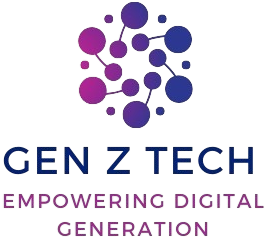Blockchain technology has often been synonymous with cryptocurrencies like Bitcoin and Ethereum, but its potential extends far beyond the world of digital currencies. As a decentralized, secure, and transparent ledger system, blockchain is increasingly being adopted across various industries, transforming how businesses operate and creating new possibilities for innovation. This article explores some of the most promising real-world applications of blockchain technology beyond cryptocurrency.
1. Supply Chain Management
One of the most significant real-world applications of blockchain https://genztech.online/ is in supply chain management. The global supply chain is a complex network involving multiple stakeholders, including manufacturers, suppliers, logistics providers, and retailers. Ensuring transparency, traceability, and efficiency in this network has always been challenging. Blockchain technology addresses these issues by providing an immutable record of every transaction and movement of goods along the supply chain.
For instance, companies like IBM and Walmart are using blockchain to track the journey of food products from farm to table. This level of transparency not only improves efficiency but also enhances food safety by allowing for quick identification and removal of contaminated products. Additionally, blockchain can reduce fraud and counterfeiting by verifying the authenticity of products, especially in industries like luxury goods, pharmaceuticals, and electronics.

2. Smart Contracts and Legal Agreements
Smart contracts are self-executing contracts with the terms of the agreement directly written into code. These contracts automatically enforce and execute the agreed-upon terms when certain conditions are met, without the need for intermediaries. Blockchain serves as the underlying technology that ensures the security, transparency, and immutability of these contracts.
In the legal industry, smart contracts have the potential to revolutionize how agreements are made and enforced. They can be used for a wide range of applications, including real estate transactions, insurance claims, and even employment contracts. For example, in real estate, a smart contract could automatically transfer ownership of a property once the buyer has made the payment, eliminating the need for escrow services and reducing transaction costs. Similarly, in insurance, smart contracts can automate the claims process, ensuring that payouts are made quickly and accurately when predefined conditions are met.
3. Healthcare and Medical Records
The healthcare industry faces significant challenges in managing patient data, ensuring data privacy, and enabling secure sharing of medical records across different healthcare providers. Blockchain technology offers a solution by creating a secure and decentralized system for managing and sharing medical records.
With blockchain, patients can have control over their medical data, granting access to healthcare providers as needed. This not only enhances data privacy but also ensures that healthcare providers have access to accurate and up-to-date patient information, leading to better diagnosis and treatment outcomes. Moreover, blockchain can streamline the process of verifying the authenticity of medical records, reducing the risk of fraud and errors.
In addition to managing medical records, blockchain is also being explored for applications like drug traceability and clinical trials. For instance, blockchain can be used to track the entire lifecycle of a drug, from manufacturing to distribution, ensuring that patients receive authentic and safe medications.

4. Voting and Elections
The integrity of elections is a critical issue for democracies around the world. Traditional voting systems are vulnerable to fraud, tampering, and human error. Blockchain technology offers a promising solution by enabling secure, transparent, and tamper-proof voting systems.
Blockchain-based voting systems can provide a decentralized and transparent platform where votes are recorded as immutable transactions. This ensures that each vote is counted accurately and that the results are transparent and verifiable. Moreover, blockchain can enable remote voting, making it easier for people to participate in elections from anywhere in the world while maintaining the integrity of the voting process.
Several countries and organizations are already experimenting with blockchain-based voting systems. For example, in 2020, the West Virginia government in the United States conducted a pilot program using blockchain for military personnel voting, demonstrating the potential of this technology to enhance the security and accessibility of elections.
5. Decentralized Finance (DeFi) and Banking
While blockchain’s association with cryptocurrencies is well-known, its impact on the broader financial industry is equally significant. Decentralized Finance (DeFi) is an emerging sector that leverages blockchain technology to create open and permissionless financial systems. Unlike traditional finance, which relies on intermediaries like banks and financial institutions, DeFi operates on decentralized networks, enabling peer-to-peer transactions and financial services.
Through DeFi platforms, users can lend, borrow, trade, and invest in digital assets without the need for traditional intermediaries. This has the potential to democratize access to financial services, particularly for individuals in regions with limited access to banking infrastructure. Additionally, blockchain can enhance the security and transparency of financial transactions, reducing the risk of fraud and ensuring the integrity of financial data.

Conclusion
Blockchain technology is rapidly expanding beyond its initial use case in cryptocurrency, finding applications across a wide range of industries. From supply chain management and healthcare to legal agreements and voting systems, blockchain is transforming how businesses operate and how data is managed. As the technology continues to evolve, it is likely that we will see even more innovative applications of blockchain, driving greater efficiency, transparency, and security in various sectors.

